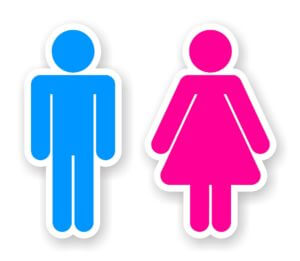Can What a Senior Eats Affect Bladder Health?
Older adults are at increased risk for a condition called overactive bladder (OAB).
It causes a sudden urge to urinate that may be uncontrollable. There are several ways to manage the condition, including making dietary changes. Knowing what your aging relative with an overactive bladder should and shouldn’t eat to manage symptoms can make dealing with condition easier.

Elderly Care in Robertsdale AL: Senior Bladder Health
Fluids and OAB
Obviously, you don’t want the older adult to become dehydrated, but drinking the right amount to prevent symptoms of OAB from getting worse is important. Although you typically hear that people should drink about 64 ounces of water each day, your aging relative may not need that much if they are otherwise healthy. Ask the doctor how much they should actually get.
For people with OAB, water should be their preferred drink. Some of the ingredients in other beverages, like caffeine, can irritate the bladder. Reduce caffeine intake to no more than 100 mg per day. That’s about one cup of coffee.
Other drinks that may be problematic are:
• Fruit juices that contain a lot of acids, like tomato, orange, or grapefruit.
• Alcohol.
• Carbonated drinks.
• Beverages that contain artificial sweeteners.
Foods to Avoid
Some foods can also make OAB symptoms worse. Foods to avoid include:
• Acidic Food: Citrus foods, tomatoes, and tomato products contain quite a bit of acid, which can irritate the bladder. Instead of citrus fruits, try eating pears and blueberries, which also contain antioxidants.
• Spicy Foods: Foods that are very spicy, such as wasabi or chili peppers, may make symptoms worse. Try using herbs to season foods instead.
• Artificial Sweeteners: Be sure to read the labels on foods and avoid those that contain saccharin, aspartame, and other artificial sweeteners.
• Chocolate: Unfortunately, chocolate contains caffeine, so people with OAB should eat only small amounts.
• Salt: Eating too much salt can cause water retention. In addition, they can increase thirst, making the older adult need to drink more.
In addition to changing the way they eat, seniors with OAB may benefit from making some other lifestyle changes. Regular exercise may help strengthen pelvic muscles that can make it easier to control the bladder. If your aging relative is overweight, they should also try to reach a healthy weight and maintain it.
Home care can help older adults with OAB to manage symptoms. A home care provider can assist the senior to avoid harmful foods by offering alternatives. Home care providers can also cook healthy meals that can improve overall health. If your aging relative has been prescribed medications for their OAB, a home care provider can help them remember to take it.
If you or someone you know needs Elderly Care in Robertsdale, AL, please contact the friendly caregivers at Hughes Home Care. We provide quality and affordable care for your elderly loved ones in our community. Call Us Today 251-517-9901. Serving Mobile & Baldwin County.
Sources:
https://www.medicalnewstoday.com/
- Risk Factors that Increase the Likelihood of Heart Failure - April 11, 2025
- Is it Possible for Seniors to Eat 30 Plants a Week? - March 25, 2025
- Healthy Aging: Why Remaining Active Matters - March 7, 2025
